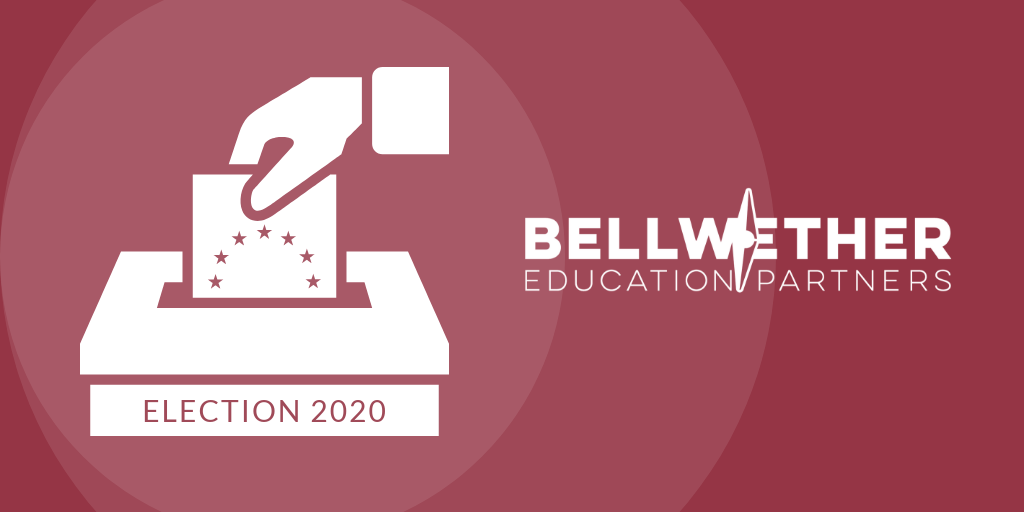 On Election Day, Bellwether shared a roundup of key races and issues we are closely watching due their potential impact on education,. While the nation nervously waits for clarity in the Presidential race, the results from several important and expensive ballot initiatives have rolled in. Here are four that I’m paying attention to:
On Election Day, Bellwether shared a roundup of key races and issues we are closely watching due their potential impact on education,. While the nation nervously waits for clarity in the Presidential race, the results from several important and expensive ballot initiatives have rolled in. Here are four that I’m paying attention to:
California’s Proposition 16
This ballot measure, which would have reversed the state’s longstanding ban on affirmative action in government hiring and in public university admissions, failed. After a summer marked by activism and calls for racial justice, 56% of voters in arguably the most progressive state rejected the measure. As a result of the state’s 1997 ban on affirmative action, the percent of Black students in the state’s university system has dropped in half, even as the state has produced more Black high school graduates. The ban also negatively affected the enrollment of Latino and Native American students in California’s public universities. In all, eight states have affirmative action bans similar to California’s and this loss is likely to have a chilling effect on activists looking to overturn bans in their states.
California’s Proposition 15
The union-backed initiative that would result in higher property taxes for commercial and industry property to provide additional funding for local governments, schools, and community colleges is trailing as of this writing. Were it to pass, Proposition 15 would be the largest tax increase in California history, resulting in a net increase in tax revenues of up to $12 billion, 40% of which would go to K-12 schools and community colleges. At the time of writing, it appears that the majority of California voters will reject this tax hike and, along with it, potentially billions of additional revenue for schools.
Washington State’s Referendum 90
Washington became the first state this week to pass a comprehensive sex education mandate with nearly 60% support. The mandate requires public schools to offer families the option of age-appropriate curriculum focused on issues including human development and consent. Opponents of the measure argued inaccurately that the legislation would impede on local administrators’ ability to control the curriculum, but it appears voters were not swayed by these arguments. Washington now joins 24 other states and D.C. that require sex education.
Multi-state Drug Reform
On Tuesday, voters across the nation sent a clear message and voted for drug policy reform. Voters in Arizona, Montana, New Jersey and South Dakota legalized marijuana for recreational purposes. In Mississippi and South Dakota, voters legalized medical marijuana. In Oregon voters decriminalized all drugs, including cocaine and heroin, and in Washington, D.C., voters decriminalized psychedelic plants (like mushrooms). With these new policies to decriminalize and legalize certain drugs will come new questions for parents and educational officials. How should officials address issues of student drug possession? What will the impact of legalization be on K-12 achievement? What rights do employees have who use recreationally? Leaders can look for some answers in Colorado, which legalized marijuana in 2012, saw the rate of teen drug use fall to its lowest level in a decade.
Stay tuned for more Election 2020 coverage here.
November 6, 2020
Ballot Initiative Results in CA, WA, and Other States — and Implications for Education
By Bellwether

Share this article
More from this topic
What the Supreme Court’s Mahmoud v. Taylor Decision Means for Schools and Families
Meeting the Moment: How 4 Philanthropic Foundations Are Stepping Up Right Now
Teaching Interrupted: How Federal Cuts Threaten a Promising Teacher Residency Program
No results found.